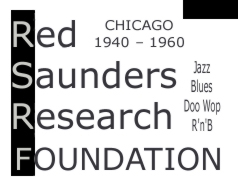

Welcome to my Web pages. This one was last updated on September 7, 2023.
I'm a Professor Emeritus in the Psychology Department at Clemson University. I retired in May 2019. I taught at Clemson University for 28 years; before that, I spent five and a half at the IBM Research Division in Hawthorne, New York. At IBM I was a Human Factors specialist; at Clemson I specialized—if that is the right word—in Developmental and Cognitive Psychology.
You can reach me by email here: campber@clemson.edu
My interests include theoretical psychology of various stripes, developmental psychology, and cognitive psychology. I've written about the development of mathematical reasoning in children, the development of expertise in adults, and the development of moral values across the life-span—you can find more on these and other endeavors in my vita.
I taught several undergraduate courses at Clemson.
At the graduate level, I taught
I retired from being a jazz critic while still active as a professor (I wrote reviews for Cadence magazine from 1992 to 1998). I have done a good deal of research on the life and music of Herman Poole Blount (better known to the world as Sun Ra). The first edition of my discography, The Earthly Recordings of Sun Ra, was published by Cadence Jazz Books in 1994. The second edition (co-authored with British Ra expert Chris Trent) came out in 2000. If you have information about released or unreleased recordings of Sun Ra and his Arkestra, please contact me by email, campber@clemson.edu.

A project that I have been involved with since 1996 grew out of an attempt to understand the strange and highly fruitful environment in which Sun Ra grew to artistic maturity. I have been gathering information on the many neglected musicians in Chicago during the two decades after World War II, especially those who worked on the boundaries between jazz and blues, or jazz and R&B... or jazz and rock-and-roll. In this research, I have the good fortune to work with knowledgeable and generous collaborators like Armin Büttner, Leonard J. Bukowski, Bill Daniels, the late Otto Flückiger, Ferdie Gonzalez, Dani Gugolz, John Holley, Dan Kochakian, Tom Kelly, Big Joe Louis, Mark Mumea, Konrad Nowakowski, the late George Paulus, Victor Pearlin, Bob Porter, Robert Pruter, Bill Sabis, Yves François Smierciak, Dr. Robert Stallworth, Helge Thygesen, Billy Vera, George R. White, and Art Zimmerman. Check out the Red Saunders Research Foundation page for more about this effort. We have compiled discographies of such figures as Buster Bennett, the Dozier Boys, the Four Blazes, King Kolax, Red Saunders, Sax Mallard, Tom Archia, Jimmy Coe, Tommy Dean, King Fleming, Eddie Johnson, Willie Jones, Claude McLin, the early Sun Ra, and Al Smith, and of such labels as Aristocrat, Boxer, Chess, Chance, Club 51, Cobra, Cool, Drexel, Gold Seal, Hy-Tone, Miracle/Sunrise, Premium, Jazz Ltd., JOB, Mad/M&M, Marvel/Planet, Old Swing-Master, Opera, OraNelle, Parkway, Parrot/Blue Lake, Ping, Rhumboogie, Rondo, S D, Session, Seymour, Sonora, Sultan, Sunbeam, Tempo-Tone, Theron, United/States, Vee-Jay, and Vitacoustic.
Objectivism is a neo-Aristotelian philosophy developed by the novelist Ayn Rand. Many of Rand's ideas have influenced my work. In her later years, Rand gave the name Objectivism to the philosophy that she and a couple of her disciples had developed. I long since quit using the Objectivist label, because I do not accept as a total package an incomplete philosophical system that has some errors in it, not all of them Rand's own. Meanwhile Rand, loudly seconded today by a few who care little about ideas and a lot about maintaining institutions or financial support from them, insisted that her philosophy be accepted or rejected as a total package. Those with a scholarly interest in Ayn Rand and her ideas might benefit from consulting the Journal of Ayn Rand Studies. Founded in 1999 by the late R. W. Bradford, and edited by Stephen Cox, Roderick Long, Chris Matthew Sciabarra, Roger Biseell and myself, JARS completed its run in June 2023 when Chris Sciabarra retired.
Click here for the Clemson University Home Page.
Click here for the Clemson Psychology Department Page.